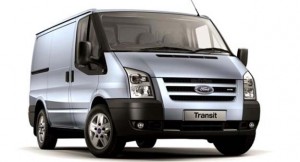Ford Motor Co. plans to invest $630 million to improve and expand operations at a plant in Turkey that will, among other things, begin supplying vans to the U.S. market, starting in 2014.
The Ford Otosan joint venture operation, in Kocaeli, Turkey, generates $3 billion in export revenues annually, the company reports, making it one of Turkey’s biggest sources of export revenue.
The 50-year-old joint venture with Turkey’s Koc Holding is one of the oldest in the auto industry and their Kocaeli operation along currently employees 6,150.
The factory’s exports are now shipped to more than 60 countries, and for 2014 it will add the U.S. to that list. Ford currently relies on the domestically-produced E-Series van for both consumer and commercial applications, but it reportedly will use the more fuel-efficient Transit as a replacement for some of those markets.
That is forcing the maker to try to find an alternative product to produce at its plant in Avon Lake, Ohio.
While Avon Lake’s future may be up in the air, the Turkish investment “will ensure that the Kocaeli plant remains at the forefront of global manufacturing capability and also will help us to build further the Transit’s long history of success,” said Stephen Odell, chairman and CEO of Ford of Europe.
The Transit van shouldn’t be confused with the Transit Connect, a smaller van that Ford also builds in Turkey. That model has been imported into the States since 2009 and took honors as North American Truck of the Year, last January – while the Ford Fusion Hybrid took honors as Car of the Year, giving the maker a rare sweep.
The decision to start shipping the Transit van to the U.S. reflects several factors. It is not only newer, more fuel efficient and more modern, but because it is already sold around the world the Transit fits in with CEO Alan Mulally’s “One Ford” strategy. Wherever possible the maker plans to come up with a single model that can be sold worldwide rather than producing unique models for individual countries. There will still be modifications made for specific markets, but by sharing the same platform and key components Ford hopes to substantially improve economies of scale.

